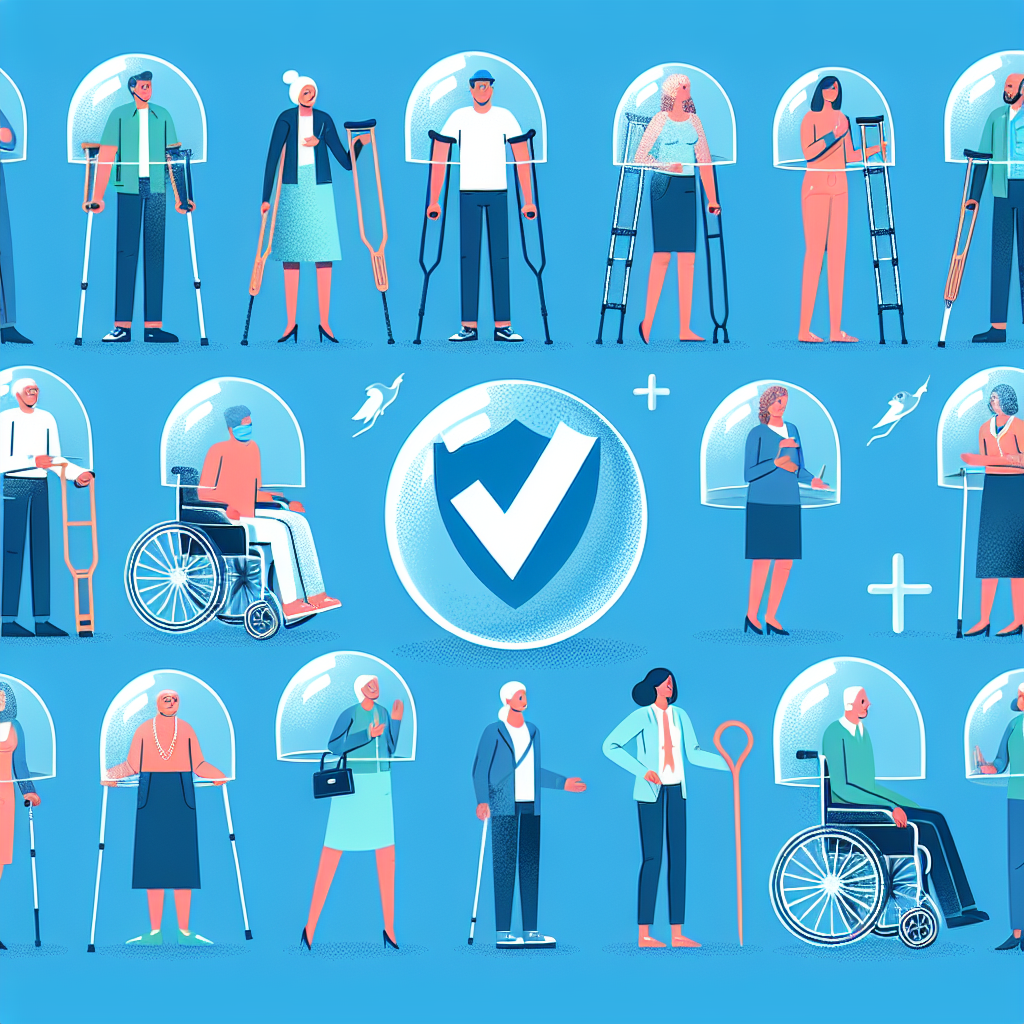Filed under Health Insurance on
Health Insurance Options During Long-Term Disability

Facing a long-term disability can be a daunting experience, not only because of the personal and physical challenges it presents but also due to the financial and healthcare aspects that accompany it. One of the critical concerns for many is maintaining health insurance coverage during this period. Without suitable health insurance options during long-term disability, individuals may find themselves grappling with mounting medical bills at a time when their income might be reduced. Fortunately, there are various health insurance options available for those navigating long-term disability. This article delves into these options, providing practical advice, real-life examples, and answering common questions to guide you through this process.
Employer-Sponsored Health Insurance: COBRA
One of the initial choices for maintaining health insurance during long-term disability is to opt for COBRA (Consolidated Omnibus Budget Reconciliation Act) coverage. If you're unable to work due to a disability, COBRA allows you to continue your employer-sponsored health insurance for a limited period, typically up to 18 months.
- How COBRA Works: Under COBRA, when you face a loss of health insurance due to disability, you can temporarily continue your same coverage by paying the full premium, which includes both your and your employer's share of the plan.
- Cost Implication: While retaining your familiar healthcare network can be comforting, it is important to budget carefully, as the cost can be significantly higher than what you paid while employed.
Example: Consider Jane, a marketing executive at a tech firm diagnosed with a debilitating condition. While she was adjusting to her new lifestyle, COBRA allowed her to maintain her existing coverage, ensuring she received consistent care without the immediate stress of finding a new plan.
Medicare and Long-Term Disability
For those under 65, Medicare becomes an option if you qualify through Social Security Disability Insurance (SSDI). After 24 months on SSDI, you automatically become eligible for Medicare.
- Medicare Components: Medicare Part A (hospital insurance) is generally premium-free, while Medicare Part B (medical insurance) requires a monthly premium. Optionally, one might consider Part D for prescription drug coverage or Medicare Advantage plans for additional benefits.
- Timely Enrollment: It's crucial to enroll promptly to avoid late penalties or gaps in coverage. Note the 7-month period around your SSDI award date when coverage becomes effective.
Example: Tom, a former engineer, was diagnosed with a chronic illness that rendered him unable to work. After two years of relying on SSDI, he transitioned to Medicare, accessing comprehensive healthcare services, including specialists vital for managing his condition.
Medicaid as a Safety Net
Medicaid, unlike Medicare, offers health insurance to low-income individuals, regardless of age. States administer Medicaid with federal guidelines, and eligibility criteria vary widely.
- Income and Assets: If you're shifting to Medicaid from another health plan, be prepared for an income and asset eligibility test. Most states consider your household income relative to the federal poverty level (FPL).
- Diverse Services: Medicaid provides broad services which might include long-term care, making it a valuable option for those needing intensive healthcare support.
Example: Sarah, once a small business owner, saw her income plummet due to her disability. Although initially hesitant, she applied for Medicaid and was approved, gaining access to necessary treatments and therapies.
Affordable Care Act (ACA) Marketplace Plans
The ACA marketplace offers another avenue for obtaining health insurance options during long-term disability, especially for those who do not qualify for Medicaid or Medicare.
- Premium Subsidies: Depending on your income, you may qualify for subsidies to help minimize the premiums. Ensure accurate estimation of your income as it can affect your subsidy eligibility.
- Special Enrollment Period: Disability can qualify you for a special enrollment period outside the standard enrollment window, allowing you to join a marketplace plan when you experience a significant life change.
Example: After experiencing an accident that left him disabled, Mike, a freelance web designer, turned to the ACA marketplace. With the aid of subsidies, he found a plan covering his essential needs without breaking his budget.
Private Insurance Plans
Private plans are worth considering if you're able to shoulder the costs or have specific coverage preferences that other options don't meet. Many insurers offer individual plans that can be tailored to your needs.
- Customizable Coverage: Private plans often provide greater flexibility in choosing network providers, but they may be less cost-effective.
- Pre-existing Conditions: Since the ACA, private plans cannot deny coverage based on pre-existing conditions, making them a reliable choice for many with long-term disabilities.
Example: Lucas, who had specialized health needs due to a rare condition, found that a private plan provided him access to a specific specialist network not available under other plans, albeit at a higher premium.
Practical Advice for Managing Health Insurance During Long-Term Disability
- Research Thoroughly: Utilize online resources or consult with a benefits advisor to understand which plan aligns best with your needs.
- Review Coverage Periodically: Life circumstances change, and so do your healthcare needs. Regularly reviewing your insurance coverage ensures continued suitability.
- Explore Supplemental Insurance: Consider supplemental plans that might offer additional benefits, such as vision or dental, to complement your primary coverage.
FAQs
1. What happens to my current health insurance if I become disabled?
If you become disabled and are unable to work, your existing employer-sponsored health insurance may continue under COBRA, but you will be responsible for the full premium. Exploring options like Medicaid or the ACA marketplace also becomes vital.
2. How does SSDI affect my eligibility for health insurance?
Receiving SSDI benefits can eventually make you eligible for Medicare after a 24-month qualifying period. This can serve as a comprehensive option for managing healthcare costs.
3. Can I get health insurance with pre-existing conditions if I am on long-term disability?
Yes, under the ACA, health insurance plans cannot deny coverage due to pre-existing conditions, whether through marketplace plans or private insurance.
4. Is Medicaid a viable option for those on long-term disability?
Yes, Medicaid provides health insurance based on income eligibility, offering a wide range of services, often including long-term care, making it a helpful choice for many disabled individuals.
5. Can I change my health insurance plan during my disability?
Yes, experiencing a disability can qualify you for a special enrollment period, allowing you to change or adjust your health insurance plan to better suit your needs.
Navigating health insurance options during long-term disability requires careful planning and proactive decision-making. From workplace-sponsored plans to government programs like Medicare and Medicaid, and private insurer options, understanding each path ensures you're well-equipped to manage your healthcare needs effectively during this challenging time.





